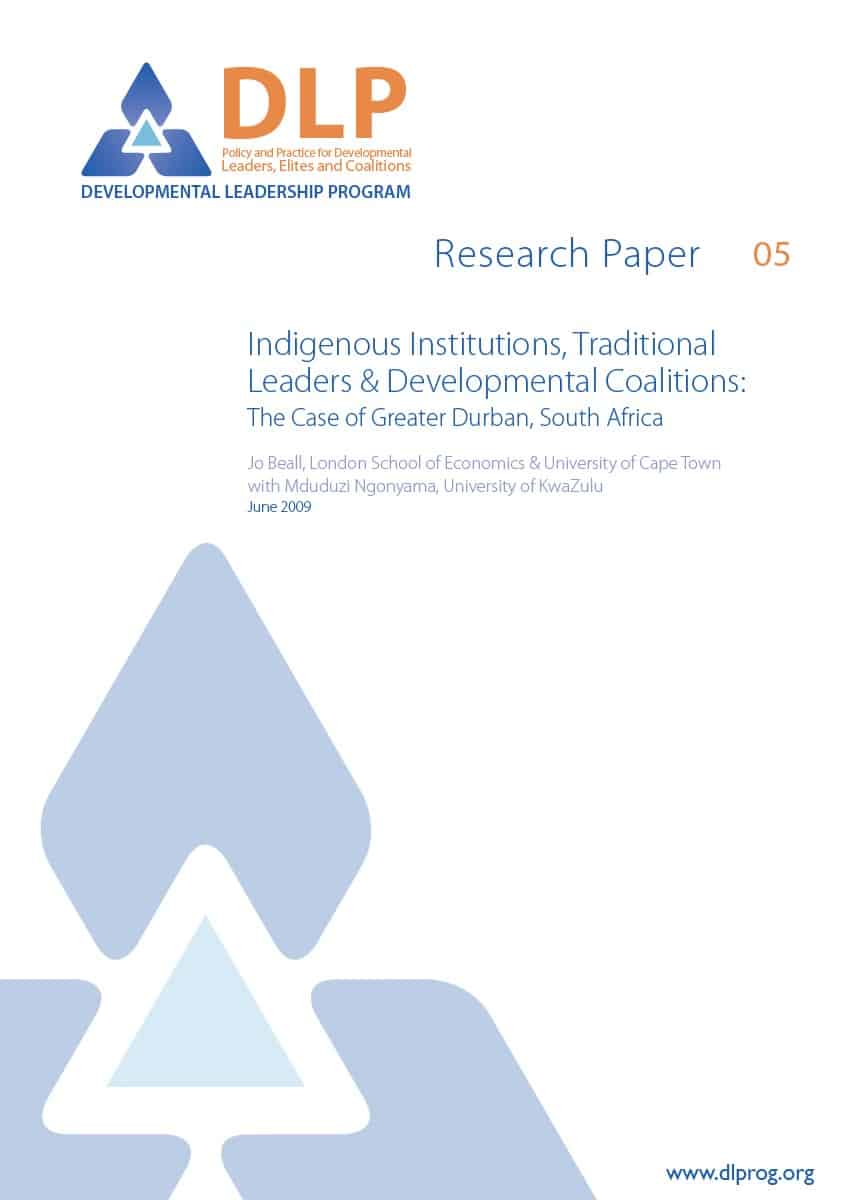South Africa had to accommodate indigenous institutions in its new political order when the country made its transition from minority rule to a non-racial democracy in 1994.
In many parts of the world, and especially post-colonial states, customary forms of governance remain salient, being deeply rooted in local institutions. However, such institutions are not immutable and have over many decades interacted with colonial powers and western states in a range of ways and to varying effect. It is increasingly recognised that institutional multiplicity and competing claims to social and political legitimacy need to be taken seriously within hybrid political orders.
Key points:
This paper examines the incorporation of indigenous institutions into the newly democratised eThekwini Metropolitan Municipality (the Metro) in Durban, South Africa, profiling examples of better and worse practice both at provincial level in KwaZulu-Natal and in the context of metropolitan governance.
It also looks at how, in the process, old political settlements and coalitions were broken and new ones constructed.
The paper concludes that success is predicated on accommodating institutional multiplicity within a hybrid political order, in which leaders work on premises of the need for trade-offs and least worst option and as a result engage in inclusive processes, which in turn facilitate developmental coalition.









